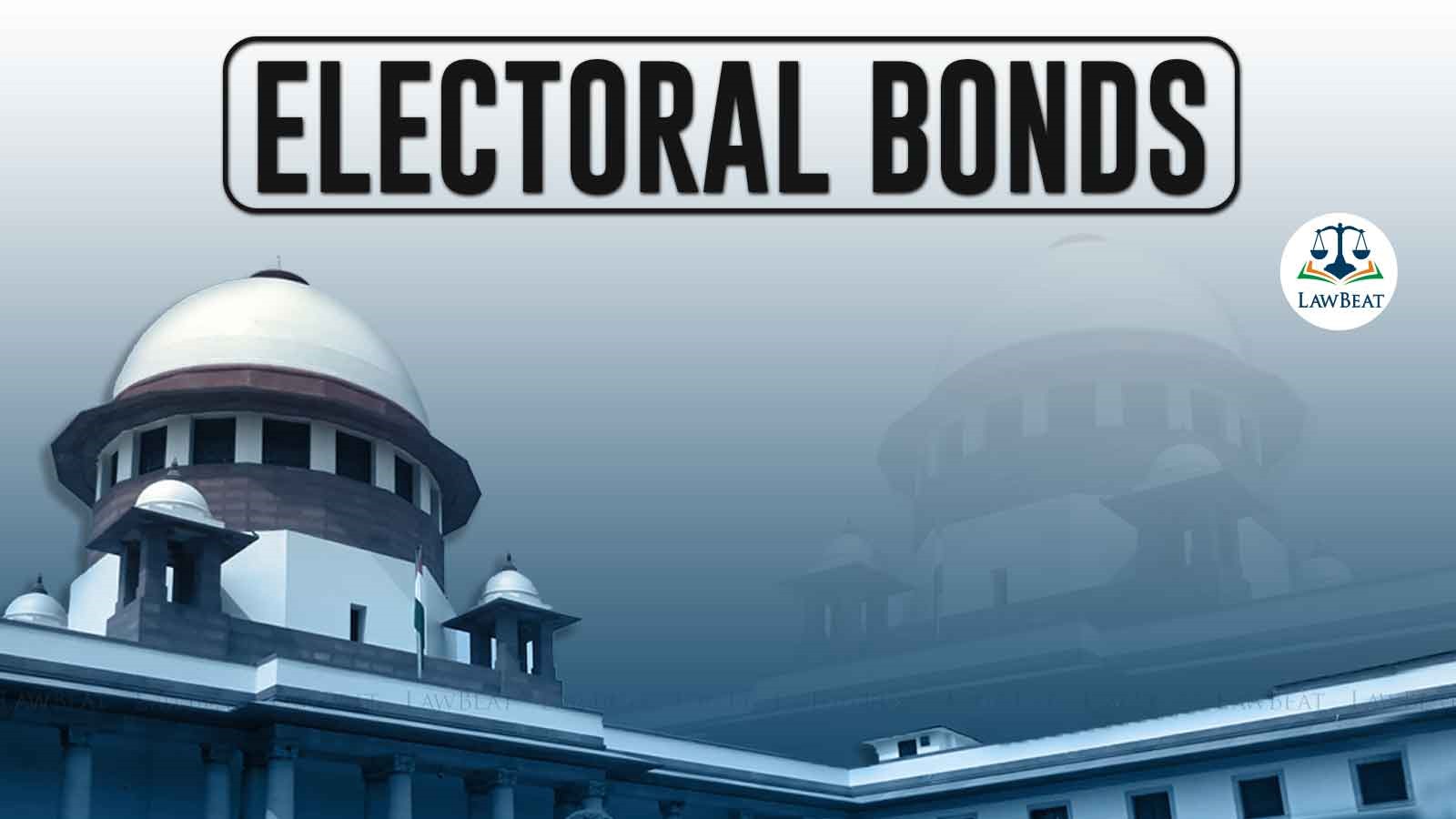"Ruling party at Center has received more than 5000 crores in last five years through Electoral Bonds": Supreme Court told

Arguing against the Scheme, Bhushan submitted that if the government wanted to do away with cash transactions, it could have simply said that all the donations are to be made through banking channels and it would have served the purpose
A Constitution Bench of the Supreme Court today began hearing the challenge to the 2018 Electoral bonds scheme.
Advocate Prashant Bhushan opened the arguments today on behalf of the petitioners by saying that amendments made through the scheme have introduced an opaque instrument which gives no record to anyone but the government.
"A political party can say we opened the doors of our office in the morning and we say these hundred electoral bonds and we don't know where they came from..that match of who purchased this electoral bonds and which political party encashed it, can only be done by the SBI, which is also a government institution..", Bhushan added.
The five judge bench was further told that the ruling party at the Center has received more than 5000 crores in the last five years through electoral bonds. "This opaque anonymous instrument gives rise to corruption..more than 50% has been received as kickbacks by the ruling party at the centre..", he added.
Bhushan also made a submission on the scheme taking away the rights of citizens to be informed under Article 19 (1)(a).
"You have completely made minced meat of the people's right to be informed on who is making these donations", the bench was told.
Recently, the Supreme Court had notified the five-judge constitution bench constituted by comprising Chief Justice of India DY Chandrachud, Justices Sanjiv Khanna, BR Gavai, JB Pardiwala and Manoj Misra, to hear the challenge made to the 2018 Scheme.
On October 16, the CJI had informed that the challenge to the 2018 Scheme was referred to a Constitution Bench of atleast five judges.
"In view of importance of the issues raised, and with regard to Article 145(4) of the Constitution of India, the matter be placed before a bench of at least five judges. The matter will be retained on October 30, 2023," the CJI had said.
Earlier the Supreme Court had ordered that it would begin final hearing in the petitions challenging the 2018 Scheme on October 31, 2023.
"Filing of any additional written submissions to be completed by October 27. Petition to be listed for hearing at the top of the board on October 31, 2023. In case of spill over, matter will be heard on November 1, 2023", a bench comprising CJI DY Chandrachud, Justice JB Pardiwala and Justice Manoj Misra had said.
In January, Supreme Court had said that it would list petitions challenging the 2018 Scheme for hearing in the third week of March 2023.
A bench comprising CJI Chandrachud and Justice PS Narasimha had said that the batch of petitions raises various issues which are separate including the challenge to the scheme, as to whether political parties will come within the ambit of the Right to Information Act (RTI) and amendments made to the Foreign Contribution (Regulation) Act (FCRA).
The government notified the Electoral Bond Scheme in 2018. According to a press release, an Electoral Bond is a bearer instrument in the nature of a Promissory Note and an interest free banking instrument. A citizen of India or a body incorporated in India will be eligible to purchase the bond. The press release further states that electoral bond would be issued/purchased for any value, in multiples of 1,000, 10,000, 1,00,000, 10,00,000 and 1,00,00,000 from the specified branches of the State Bank of India (SBI).
Last year in October, the Centre took the position in Supreme Court that the methodology of electoral bonds scheme is a "completely transparent" one and that it does not perpetuate black money or unaccounted money.
Cause Title: Association for Democratic Reforms vs Union of India and ors | Jaya Thakur Vs UOI & other batch petitions
